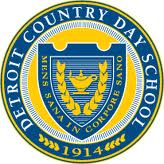Social Networking and Your Child
Social Networking, using sites like Facebook, Twitter, MySpace and many others, has become a regular part of teens’ lives. It is also becoming popular and more accessible amongst younger children as well. When used responsibly and cautiously, these tools can be very positive. Many businesses and educational institutions use social networking to communicate with their communities and target audiences. Professionals use Facebook, LinkedIn and Twitter to make and solidify business and academic connections. While we know that teens use these resources on a regular basis, younger children are beginning to explore and use these sites as well. Social networking sites can be used as tools to harass and bully others, meet strangers who could easily be predators and express oneself in a way that may not occur in a real-life situation. Parents should be aware of their children’s on-line activities and monitor them closely. One social networking site that has recently exploded in popularity is Formspring. (www.formspring.me/) Users go to Formspring and allow anyone to ask them anything, and respond to those questions. In a strange turn of events, it has become an on-line forum in which students are being bullied and harassed. Users must create an account but questions can be asked anonymously. Like Facebook, one must be 13 years of age to sign up for Formspring. However, the only verification of age is a checkbox affirming the user to be 13 or older. Anyone under 13 can check that box if they care to. Parents should take the time to learn more about these sites and how their children may use them.
Teens and even college students on Facebook have come across issues of potential employers or university admissions departments checking backgrounds. There have been many instances of someone being denied a job or college entrance based on the personal information posted by that person on social networking sites. This information is often used for harassment and bullying as well. Many teens use these sites to meet people and it is common for real-life relationships to develop from social networking. Some teens post inappropriate comments or pictures of themselves on social networking sites, which can easily invite predators or police. Facebook usage amongst children younger than 13 is increasing rapidly.
Used properly, social networking websites can be valuable tools for learning and networking. Used inappropriately, they can be dangerous and have many unforeseen consequences. Most are blocked to students on GPPSS computers and when they are used, it is with due vigilance. Parents can use built-in features of web browsers or free software like K9 Web Protection (http://www1.k9webprotection.com/) to block and monitor websites that they want to block or limit. Filtering and blocking websites can’t prevent a child from accessing a site that he or she is determined to use. Students with smartphones, laptops, etc. can easily access these sites from anywhere outside of school and the home computer. Please have a conversation about the dangers and consequences of inappropriate use of social networking and cyber-bullying with your children.
Some of the more popular social networking sites, in addition to those already mentioned, include the following:
· 43 Things: Users set goals to achieve and are linked by commonality of goals
· BlackPlanet: caters to African Americans, one of the oldest social networks on the Internet.
· Broadcaster: video social networking.
· Classmates: generally avoided by teens, but will charge users for usage.
· eSPIN and eCRUSH: These sites match users randomly and anonymously, although anonymity often fades away fast.
· Flixter: Increasingly popular-mixes social networking with movie reviews
· Foursquare: used to let others know your specific geographic location
· Friendster: Keep in touch with friends and meet new people
· Hi5: “Social entertainment for the youth market worldwide”
· Meetup: Social network aimed at organizing in-person meetings of people with a specific common interest, e.g. hobbyists, etc.
· Tagged: specifically designed for users to meet new friends.
· Xanga: Social networking via blogging. Very popular amongst teens
Here are some articles worth reading if you have concerns about your child’s internet activities. Please be warned the some of the articles contain strong language as examples of misuse of social networking, cyber-bullying and harassment.
· Is FormSpring.me Another Platform for Cyber Bullying?: http://tinyurl.com/cyberbullyFS
· Teens Abuse, Find Comfort in Anonymity on Formspring.me: http://tinyurl.com/cyberbullyFS2
· What Every Parent Should Know About Formspring: The New Cyberscourge for Teens: http://tinyurl.com/cyberbullyFS3
· The 5 Facebook Dangers-Perils That Have Nothing to Do with Internet Predators: http://tinyurl.com/cyberbullyFB1
· National Crime Prevention Council on cyberbullying: http://www.ncpc.org/cyberbullying

3 comments:
What started out as a good informative piece, quickly turned into a "FEAR ALL SOCIAL NETWORKS" piece. It was disappointing to see a technology specialist have this sort of view on social networks.
I didn't take the "fear all social networks message" out of it. Discussing social networks and online behaviour with your children is a vital part of modern parenting.
I also agree that K9 is a great piece of cross platform software.
Hope you don't mind I linked to this article here: http://www.digitalparents.org/the-principals-office-social-networking
I don't think Mike's intent was to foster a fear of social networks - he's an advocate which is why I published his letter on the blog. He makes some valid suggestions that parents be aware of and monitor their childrens' online activities.
Toby - thanks for the link.
Tim Bearden
Post a Comment